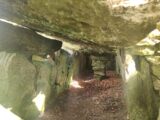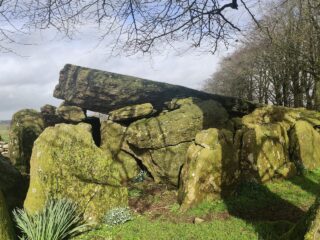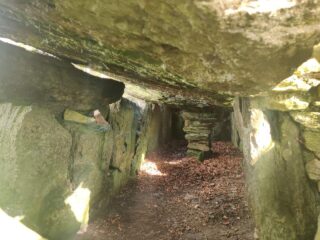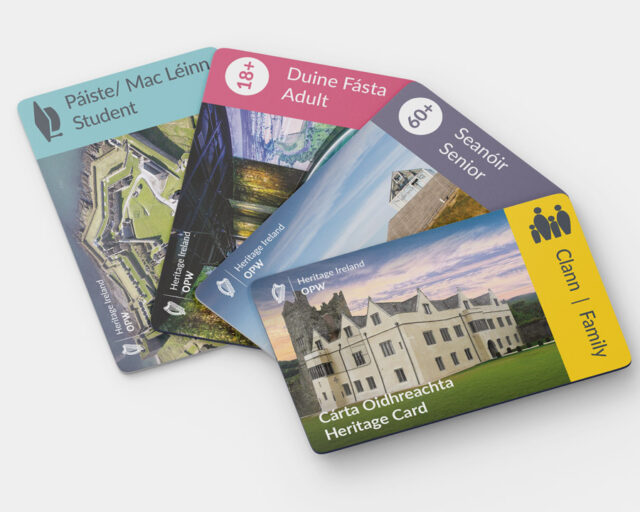Notice
Labbacallee Wedge Tomb is a National Monument in state guardianship
WARNING: It should be noted that these sites are unguided and a level of care and caution should be maintained during all stages of your visit. The Office Of Public Works (OPW) will not be held responsible for any damages, injuries, or losses that occur
Labbacallee Wedge Tomb – Giants Grave
Ireland’s largest wedge tomb, Labbacallee, is eight km north-west of Fermoy. Wedge tombs form part of four megalithic monuments in Ireland including court tombs, portal dolmens and passage-graves. The Wedge tomb is particular to Ireland and considered the youngest of our Stone Age monuments.
Labbacallee Wedge Tomb, as the name suggests, is wedge-shaped. Three large capstones carried by three buttress stones form the outline of the tomb. Internally, the tomb is a long sub-rectangular galley divided into two sections – the portico to the front and the burial chamber to the back.
Labbacallee was excavated in 1934 with many human remains found. The finds included the remains of a female skeleton, with burnt animal bones, and a bone pin – used to secure the shroud in which she would have been buried in; cremated human bones and coarse pot shards, two burials, and three skulls with shards of coarse potter. Other burials were found in the portico area with a cist containing a burial and a possible food vessel. The radiocarbon date of the human remains is 2202-2138BC.
Protect our Past - Click here to read about the importance of protecting our country’s unique heritage sites
This national monument is protected in accordance with the National Monuments Acts 1930 to 2014
Gallery
Nearby sites to visit
Annes Grove Gardens
A horticultural paradise in north Cork
Approx. 9.9 km from Labbacallee Wedge Tomb – Giants Grave
Doneraile Court and Estate
North Cork’s ‘real-life Downton Abbey’
Approx. 17.6 km from Labbacallee Wedge Tomb – Giants Grave
Barryscourt Castle
A fine Irish tower house bearing the scars of battle
Approx. 30.4 km from Labbacallee Wedge Tomb – Giants Grave
Fota Arboretum and Gardens
Explore an island oasis of rare and exotic flora
Approx. 31.2 km from Labbacallee Wedge Tomb – Giants Grave
The Swiss Cottage
An idyllic fantasy of country life
Approx. 34.6 km from Labbacallee Wedge Tomb – Giants Grave
Cahir Castle
A defensive powerhouse of the thirteenth century
Approx. 35.6 km from Labbacallee Wedge Tomb – Giants Grave



